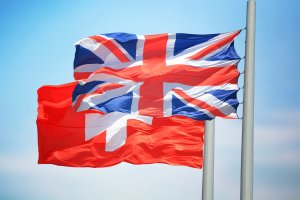- Commercial disputes

Longer Reads
Director responsibilities amid Russian asset seizures
Shareholders are increasingly seeking to hold directors accountable under circumstances that extend beyond traditional considerations.
6 minute read
Published 11 August 2023
Key information
- Specialisms
- Dispute Resolution
- Services
- Commercial disputes
A recent example is the unsuccessful action in May in the High Court of Justice of England and Wales by Shell PLC’s minority shareholder ClientEarth against the company’s board of directors for their alleged failure to adequately manage climate-related risks.
The uncertainty of the current geopolitical environment has further extended the obligations on companies, which has raised concerns for shareholders. In particular, the Russian invasion of Ukraine and subsequent Russia (Sanctions) (EU Exit) Regulations 2022 have influenced growing numbers of companies to suspend their activities in Russia, with some looking to make a permanent exit from the country. In some cases, these decisions are driven by pressure from shareholders.
On April 25, President Vladimir Putin exacerbated matters when he issued a counter-sanction presidential decree, known as Decree No. 302. The decree appoints Russia’s Federal Agency for State Property Management — known as Rosimushestvo — as an interim administrator whose role is to temporarily manage assets belonging to “unfriendly foreign states.” This includes the member states of the European Union, the United Kingdom and the United States.
The most recent exercise of this decree is the July 16 Russian takeovers of Carlsberg A/S’s stake in the local brewery Baltika, and the Russian subsidiary of French yogurt maker Groupe Danone.
The prerequisites to trigger the seizures are noticeably and purposefully broad, and include, inter alia, a threat to the national security of the Russian Federation. The decree allows Rosimushestvo to exercise all management powers other than the right to dispose of the asset. Since the decree can only be amended by presidential decree, rather than legislative or court procedures, it essentially allows the Kremlin to forcibly seize and manage foreign assets at will.
So far, the decree has been enforced against four companies:
– PAO Fortum, the Russian subsidiary of Nordic energy company Fortum;
– Unipro, the Russian subsidiary of German energy company Uniper SE;
– Danone Russia, the Russian subsidiary of Danone; and
– Baltika, the Russian subsidiary of Carlsberg.
The seizures have had a devastating financial impact on the companies concerned. For example, Danone indicated on July 26 that it will write off €200 million ($221 million) on its Russian operations. Interested parties, including shareholders, will inevitably question whether the seizures were avoidable and what legal recourse may be available to them.
This article examines what duties, if any, that Danone and Carlsberg’s directors may have breached and what legal mechanisms shareholders could use against them if the companies had been incorporated in England and Wales.
Has There Been a Breach By the Directors?
It may be argued that the directors failed to properly guard the companies’ assets and address the risks posed by increasing hostility between Russia and some foreign states.
If Danone and Carlsberg were subject to the Companies Act 2006, the directors’ duty to promote the success of the company would be of relevance, the so-called Section 172 duty. In promoting the success of the company, the CA 2006 lists nonexhaustive factors a board should consider.
These include the likely long-term consequences of any decision, the interests of the employees, the need to foster business relationships, the impact on the company’s operations on the community and the environment, the desirability of maintaining a reputation for high standards of business conduct, and the need to act fairly between members.
Directors are also bound by the duty to exercise reasonable care, skill and diligence, the so- called Section 174 duty. In essence, directors should be sufficiently familiar with the company’s affairs, including its financial position, to meet their responsibilities for the management of the company’s business and should ensure that they have relevant information for this purpose.
Where companies have an interest in Russia, it is inevitable that the relevant geopolitical developments would have been a recurring topic of conversation in many boardrooms. In December 2022, the Russian Ministry of Finance declared that foreign investors from unfriendly countries selling stakes in Russian assets may have to do so at half price or less, with the Russian budget potentially taking a 10% cut of any transaction.
It therefore comes as no surprise that, reflective of the increasing headwinds felt by many Western companies in Russia, all four parent companies of the subsidiaries seized by the decree to date were seeking to sell their Russian subsidiaries when they were seized. Of course, while legal title is not affected, they have now lost the operational management and control to do so.
The time frames of the seizures should not be ignored. PAO Fortum and Unipro were seized the day after the decree was enacted. However, Danone Russia and Baltika were not seized until two months later. This begs the question: Did the directors of Danone and Carlsberg take enough action to discharge their duties as directors when they were acutely aware of the possibility of a future seizure?
Success in the context of the Section 172 duty will generally mean a long-term increase in the value of the company. It may be said, therefore, that the directors’ decisions to sell the aforementioned subsidiaries under the circumstances of the December 2022 declaration, under which the assets of the company would be significantly devalued, was failing to promote their success.
Relativity and hindsight come into play here. The shareholders might have had a complaint against the company selling at the undervalue prescribed by the December 2022 declaration. The Draconian measures by the Kremlin in relation to the decree have made matters worse in relation to the cause of substantial financial loss to shareholders.
However, fundamentally, it is up to each director to decide, in good faith, whether it is appropriate for the company to take a particular course of action. The potential difficulties in selling the subsidiaries and the concurrent risks associated with selling them were known to the directors following the December 2022 declaration. When deciding to dispose of the assets, therefore, it is likely the directors were acting to promote the long-term success of the companies by considering reputational preservation and the need to foster business relationships.
Indeed, the decisions must be analyzed in the context of an aggressive war where international sanctions relating to Russia have been and continue to be imposed. It is likely the directors reasonably believed, in good faith, that the withdrawal of operations from an increasingly hostile environment would financially protect the companies.
It is difficult to see how the directors could be criticized for the actions taken in response to unprecedented threats to their assets unless the Ukrainian invasion was so reasonably foreseeable that the directors ought to have divested themselves of their Russian assets at a better value before the war and the imposition of sanctions.
In terms of the Section 174 duty, many other Western companies sold their Russian subsidiaries to either comply with sanctions or to avoid asset seizure by the Kremlin. It may be argued, therefore, that the directors of the parent companies did not act swiftly enough to pursue the sales.
Indeed, Carlsberg had signed a sale agreement on June 23, yet it had not completed in time. The directors were aware of the risk of asset confiscation and may face criticism from shareholders for taking too long to pursue the sales.
However, in circumstances in which a presidential decree was issued by Putin that said that foreign owners from unfriendly countries could not make deals without his approval, one can understand the difficulties the directors faced in making swift sales.
Directors are only obliged to act reasonably. In unprecedented circumstances, unpredictable conduct, and a time of war, it would be surprising if shareholders’ claims were successfully pursued in this context.
What Could Shareholders Do?
Notwithstanding the difficulties mentioned above, shareholders may nonetheless seek to act against the directors if they believe that their duties have been breached. It is long established that the proper claimant in wrongs committed against a company, whether by directors or by third parties, is the company itself.
Shareholders are barred by the “no reflective loss” rule that prevents them from bringing claims where their loss merely reflects the loss suffered by the company. However, shareholders may bring either a derivative claim on behalf of the company, or an unfair prejudice petition in their own right.
Derivative Claim
A derivative claim is made on behalf of the company with the permission of the court. Consequently, any recovery will be for the benefit of the company and not the individual shareholder.
Derivative claims are generally founded on breaches of directors’ duties and may only be brought for causes of action arising from an actual or proposed act or omission involving any negligence, default, breach of duty or breach of trust by the director according to Section 260(3) of the CA 2006.
In deciding whether to grant permission, the court will first determine whether a prima facie case is established, and if so, will then consider the factors in Section 263 of the CA 2006. This includes examining any evidence that has been provided to the court about the views of shareholders who do not have a personal interest in the matter.
Crucially, the courts will be reluctant to question a board decision taken in good faith that appeared reasonable at the time, whatever may have transpired subsequently.
Shareholders may therefore struggle to bring a derivative claim.
If shareholder complaints concern the decision to sell the subsidiaries that prompted their seizure, it is likely the directors would successfully argue that selling the subsidiaries were, at the time, a reasonable decision to make in response to the international condemnation of Russia’s invasion of Ukraine. Indeed, many other companies have taken similar measures to distance themselves from Russia.
If the grievance is directors have taken too long to initiate the sale process, the courts may be reluctant to allow shareholders to bring derivative claims against directors for not having anticipated every possible consequence of their actions.
Further, the delay in selling the subsidiaries may not be attributable to the directors, but rather the operational challenges and obstacles they likely would have faced. Practically speaking, however, derivative claims may be a favorable option for shareholders as they can apply for a preemptive costs order that will require the companies to pay the shareholder’s legal costs from the outset of the claim.
Unfair Prejudice Petition
An unfair prejudice petition is brought when the affairs of the company have been conducted in a manner that is unfairly prejudicial to the interests of the members under Section 994 of the CA 2006. The conduct must be in respect of the company’s affairs, e.g., management decisions.
The evidential burden to show unfair prejudice can be difficult to satisfy. Breaches of fiduciary duty, for example, are not automatically unfair. Real prejudice must be suffered, such as evidencing damage to the parties’ relationship.
While a shareholder can show prejudice if the economic value of their shares has decreased because of the directors’ conduct, a court will not interfere with questions of commercial judgment and mismanagement based on a difference of opinion. The scale of financial loss and the frequency and duration of acts or omissions constituting mismanagement will determine whether mismanagement is sufficiently serious to qualify for this claim.
This is a complicated area and heavily dependent on the individual facts of a case. Where difficult decisions are being made in unprecedented circumstances, it would seem an uphill battle to establish unfair prejudice.
Shareholders of Carlsberg and Danone would likely argue that the unfairly prejudicial conduct were the director’s alleged breaches of fiduciary duty or company mismanagement. However, courts will not interfere in questions of commercial judgment and in practice, shareholders’ interests are often limited to the running of the company in accordance with its Articles of Association.
The court is anticipated to consider the sale of a subsidiary during wartime to be a commercial judgment, rather than mismanagement or breach of duty. The subjective test of the Section 172 duty is crucial here and shareholders are reminded that directors are only obliged to exercise the care, skill and diligence that would be exercised and expected by a reasonably diligent person with the general knowledge, skill and experience that the director has.
Conclusion
These developments undoubtedly require navigation of difficult decisions by directors and may leave shareholders disgruntled and looking for recourse.
Whatever the outcome, these events act as a stark reminder that directors are responsible for the management of a company’s business that can be affected by developments outside its control and are subject to certain duties to safeguard the interests of the company, which must be taken seriously and addressed proactively.
This article was first published by Law360 on 11 August 2023.
For more information, visit our Commercial Litigation Dispute Resolution page.
Related content
Longer Reads
Director responsibilities amid Russian asset seizures
Shareholders are increasingly seeking to hold directors accountable under circumstances that extend beyond traditional considerations.
Published 11 August 2023
Associated sectors / services
Authors
A recent example is the unsuccessful action in May in the High Court of Justice of England and Wales by Shell PLC’s minority shareholder ClientEarth against the company’s board of directors for their alleged failure to adequately manage climate-related risks.
The uncertainty of the current geopolitical environment has further extended the obligations on companies, which has raised concerns for shareholders. In particular, the Russian invasion of Ukraine and subsequent Russia (Sanctions) (EU Exit) Regulations 2022 have influenced growing numbers of companies to suspend their activities in Russia, with some looking to make a permanent exit from the country. In some cases, these decisions are driven by pressure from shareholders.
On April 25, President Vladimir Putin exacerbated matters when he issued a counter-sanction presidential decree, known as Decree No. 302. The decree appoints Russia’s Federal Agency for State Property Management — known as Rosimushestvo — as an interim administrator whose role is to temporarily manage assets belonging to “unfriendly foreign states.” This includes the member states of the European Union, the United Kingdom and the United States.
The most recent exercise of this decree is the July 16 Russian takeovers of Carlsberg A/S’s stake in the local brewery Baltika, and the Russian subsidiary of French yogurt maker Groupe Danone.
The prerequisites to trigger the seizures are noticeably and purposefully broad, and include, inter alia, a threat to the national security of the Russian Federation. The decree allows Rosimushestvo to exercise all management powers other than the right to dispose of the asset. Since the decree can only be amended by presidential decree, rather than legislative or court procedures, it essentially allows the Kremlin to forcibly seize and manage foreign assets at will.
So far, the decree has been enforced against four companies:
– PAO Fortum, the Russian subsidiary of Nordic energy company Fortum;
– Unipro, the Russian subsidiary of German energy company Uniper SE;
– Danone Russia, the Russian subsidiary of Danone; and
– Baltika, the Russian subsidiary of Carlsberg.
The seizures have had a devastating financial impact on the companies concerned. For example, Danone indicated on July 26 that it will write off €200 million ($221 million) on its Russian operations. Interested parties, including shareholders, will inevitably question whether the seizures were avoidable and what legal recourse may be available to them.
This article examines what duties, if any, that Danone and Carlsberg’s directors may have breached and what legal mechanisms shareholders could use against them if the companies had been incorporated in England and Wales.
Has There Been a Breach By the Directors?
It may be argued that the directors failed to properly guard the companies’ assets and address the risks posed by increasing hostility between Russia and some foreign states.
If Danone and Carlsberg were subject to the Companies Act 2006, the directors’ duty to promote the success of the company would be of relevance, the so-called Section 172 duty. In promoting the success of the company, the CA 2006 lists nonexhaustive factors a board should consider.
These include the likely long-term consequences of any decision, the interests of the employees, the need to foster business relationships, the impact on the company’s operations on the community and the environment, the desirability of maintaining a reputation for high standards of business conduct, and the need to act fairly between members.
Directors are also bound by the duty to exercise reasonable care, skill and diligence, the so- called Section 174 duty. In essence, directors should be sufficiently familiar with the company’s affairs, including its financial position, to meet their responsibilities for the management of the company’s business and should ensure that they have relevant information for this purpose.
Where companies have an interest in Russia, it is inevitable that the relevant geopolitical developments would have been a recurring topic of conversation in many boardrooms. In December 2022, the Russian Ministry of Finance declared that foreign investors from unfriendly countries selling stakes in Russian assets may have to do so at half price or less, with the Russian budget potentially taking a 10% cut of any transaction.
It therefore comes as no surprise that, reflective of the increasing headwinds felt by many Western companies in Russia, all four parent companies of the subsidiaries seized by the decree to date were seeking to sell their Russian subsidiaries when they were seized. Of course, while legal title is not affected, they have now lost the operational management and control to do so.
The time frames of the seizures should not be ignored. PAO Fortum and Unipro were seized the day after the decree was enacted. However, Danone Russia and Baltika were not seized until two months later. This begs the question: Did the directors of Danone and Carlsberg take enough action to discharge their duties as directors when they were acutely aware of the possibility of a future seizure?
Success in the context of the Section 172 duty will generally mean a long-term increase in the value of the company. It may be said, therefore, that the directors’ decisions to sell the aforementioned subsidiaries under the circumstances of the December 2022 declaration, under which the assets of the company would be significantly devalued, was failing to promote their success.
Relativity and hindsight come into play here. The shareholders might have had a complaint against the company selling at the undervalue prescribed by the December 2022 declaration. The Draconian measures by the Kremlin in relation to the decree have made matters worse in relation to the cause of substantial financial loss to shareholders.
However, fundamentally, it is up to each director to decide, in good faith, whether it is appropriate for the company to take a particular course of action. The potential difficulties in selling the subsidiaries and the concurrent risks associated with selling them were known to the directors following the December 2022 declaration. When deciding to dispose of the assets, therefore, it is likely the directors were acting to promote the long-term success of the companies by considering reputational preservation and the need to foster business relationships.
Indeed, the decisions must be analyzed in the context of an aggressive war where international sanctions relating to Russia have been and continue to be imposed. It is likely the directors reasonably believed, in good faith, that the withdrawal of operations from an increasingly hostile environment would financially protect the companies.
It is difficult to see how the directors could be criticized for the actions taken in response to unprecedented threats to their assets unless the Ukrainian invasion was so reasonably foreseeable that the directors ought to have divested themselves of their Russian assets at a better value before the war and the imposition of sanctions.
In terms of the Section 174 duty, many other Western companies sold their Russian subsidiaries to either comply with sanctions or to avoid asset seizure by the Kremlin. It may be argued, therefore, that the directors of the parent companies did not act swiftly enough to pursue the sales.
Indeed, Carlsberg had signed a sale agreement on June 23, yet it had not completed in time. The directors were aware of the risk of asset confiscation and may face criticism from shareholders for taking too long to pursue the sales.
However, in circumstances in which a presidential decree was issued by Putin that said that foreign owners from unfriendly countries could not make deals without his approval, one can understand the difficulties the directors faced in making swift sales.
Directors are only obliged to act reasonably. In unprecedented circumstances, unpredictable conduct, and a time of war, it would be surprising if shareholders’ claims were successfully pursued in this context.
What Could Shareholders Do?
Notwithstanding the difficulties mentioned above, shareholders may nonetheless seek to act against the directors if they believe that their duties have been breached. It is long established that the proper claimant in wrongs committed against a company, whether by directors or by third parties, is the company itself.
Shareholders are barred by the “no reflective loss” rule that prevents them from bringing claims where their loss merely reflects the loss suffered by the company. However, shareholders may bring either a derivative claim on behalf of the company, or an unfair prejudice petition in their own right.
Derivative Claim
A derivative claim is made on behalf of the company with the permission of the court. Consequently, any recovery will be for the benefit of the company and not the individual shareholder.
Derivative claims are generally founded on breaches of directors’ duties and may only be brought for causes of action arising from an actual or proposed act or omission involving any negligence, default, breach of duty or breach of trust by the director according to Section 260(3) of the CA 2006.
In deciding whether to grant permission, the court will first determine whether a prima facie case is established, and if so, will then consider the factors in Section 263 of the CA 2006. This includes examining any evidence that has been provided to the court about the views of shareholders who do not have a personal interest in the matter.
Crucially, the courts will be reluctant to question a board decision taken in good faith that appeared reasonable at the time, whatever may have transpired subsequently.
Shareholders may therefore struggle to bring a derivative claim.
If shareholder complaints concern the decision to sell the subsidiaries that prompted their seizure, it is likely the directors would successfully argue that selling the subsidiaries were, at the time, a reasonable decision to make in response to the international condemnation of Russia’s invasion of Ukraine. Indeed, many other companies have taken similar measures to distance themselves from Russia.
If the grievance is directors have taken too long to initiate the sale process, the courts may be reluctant to allow shareholders to bring derivative claims against directors for not having anticipated every possible consequence of their actions.
Further, the delay in selling the subsidiaries may not be attributable to the directors, but rather the operational challenges and obstacles they likely would have faced. Practically speaking, however, derivative claims may be a favorable option for shareholders as they can apply for a preemptive costs order that will require the companies to pay the shareholder’s legal costs from the outset of the claim.
Unfair Prejudice Petition
An unfair prejudice petition is brought when the affairs of the company have been conducted in a manner that is unfairly prejudicial to the interests of the members under Section 994 of the CA 2006. The conduct must be in respect of the company’s affairs, e.g., management decisions.
The evidential burden to show unfair prejudice can be difficult to satisfy. Breaches of fiduciary duty, for example, are not automatically unfair. Real prejudice must be suffered, such as evidencing damage to the parties’ relationship.
While a shareholder can show prejudice if the economic value of their shares has decreased because of the directors’ conduct, a court will not interfere with questions of commercial judgment and mismanagement based on a difference of opinion. The scale of financial loss and the frequency and duration of acts or omissions constituting mismanagement will determine whether mismanagement is sufficiently serious to qualify for this claim.
This is a complicated area and heavily dependent on the individual facts of a case. Where difficult decisions are being made in unprecedented circumstances, it would seem an uphill battle to establish unfair prejudice.
Shareholders of Carlsberg and Danone would likely argue that the unfairly prejudicial conduct were the director’s alleged breaches of fiduciary duty or company mismanagement. However, courts will not interfere in questions of commercial judgment and in practice, shareholders’ interests are often limited to the running of the company in accordance with its Articles of Association.
The court is anticipated to consider the sale of a subsidiary during wartime to be a commercial judgment, rather than mismanagement or breach of duty. The subjective test of the Section 172 duty is crucial here and shareholders are reminded that directors are only obliged to exercise the care, skill and diligence that would be exercised and expected by a reasonably diligent person with the general knowledge, skill and experience that the director has.
Conclusion
These developments undoubtedly require navigation of difficult decisions by directors and may leave shareholders disgruntled and looking for recourse.
Whatever the outcome, these events act as a stark reminder that directors are responsible for the management of a company’s business that can be affected by developments outside its control and are subject to certain duties to safeguard the interests of the company, which must be taken seriously and addressed proactively.
This article was first published by Law360 on 11 August 2023.
For more information, visit our Commercial Litigation Dispute Resolution page.
Associated sectors / services
- Commercial disputes
Authors
Need some more information? Make an enquiry below.
Subscribe
Please add your details and your areas of interest below
Article contributors
Robin
HenryPartner - Head of Dispute Resolution Services
Specialising in Banking & financial disputes, Commercial disputes, Corporate recovery, restructuring & insolvency, Financial regulatory and Personal insolvencyNichola
LeachSenior Associate
Specialising in Commercial disputes and Media & PrivacyTamara
DavisAssociate
Specialising in Banking & financial disputes, Commercial disputes and Corporate recovery, restructuring & insolvency
Enjoy reading our articles? why not subscribe to notifications so you’ll never miss one?
Subscribe to our articlesMessage us on WhatsApp (calling not available)
Please note that Collyer Bristow provides this service during office hours for general information and enquiries only and that no legal or other professional advice will be provided over the WhatsApp platform. Please also note that if you choose to use this platform your personal data is likely to be processed outside the UK and EEA, including in the US. Appropriate legal or other professional opinion should be taken before taking or omitting to take any action in respect of any specific problem. Collyer Bristow LLP accepts no liability for any loss or damage which may arise from reliance on information provided. All information will be deleted immediately upon completion of a conversation.
Close
















































